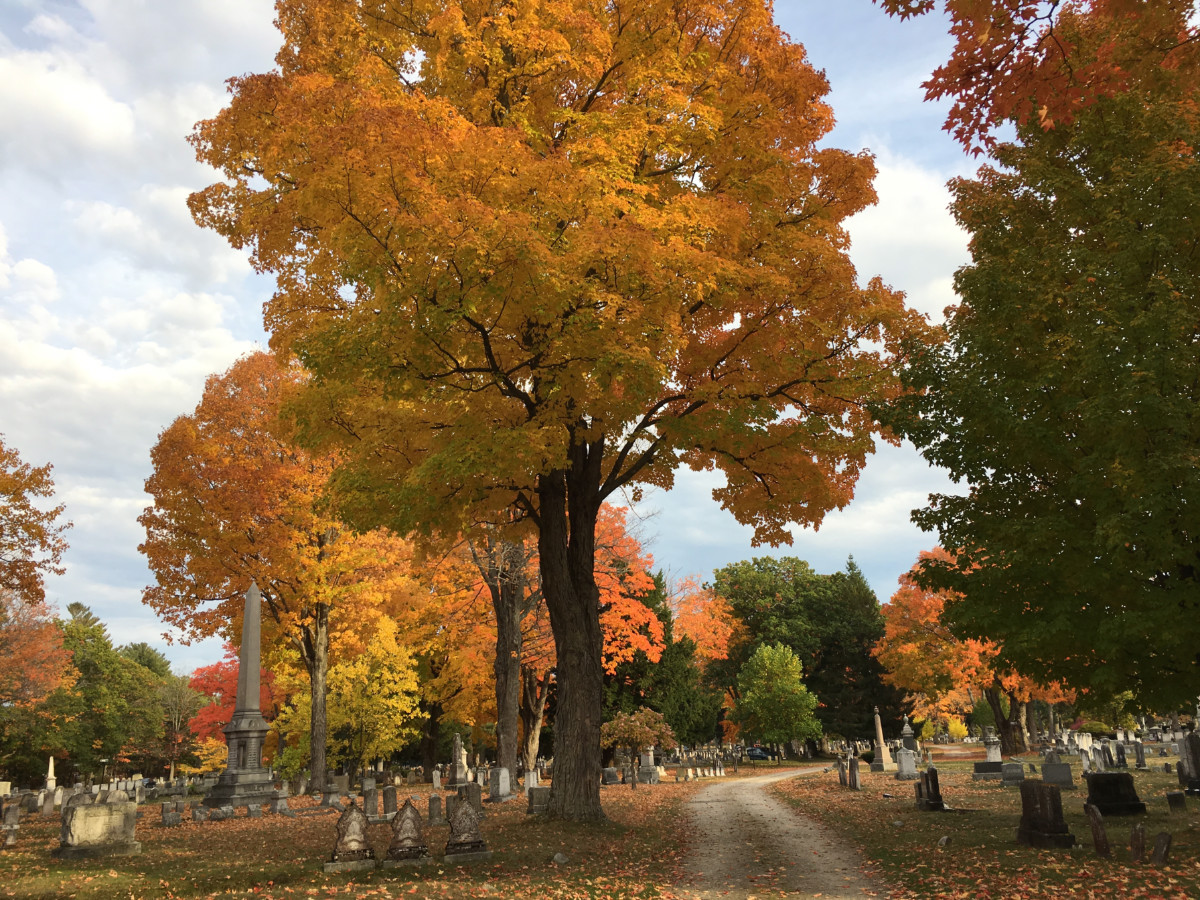A Kitchen Counter, A Wave of Migrants and The Little Dog
Life in the Time of Corona
Life in the Time of Corona

September 2020
I am restricted to walking on flat roads instead of trails, though I do walk dirt roads that are not too bumpy. I can only walk for five minutes without pain. This may sound bleak but I have cheated death —after an extremely short walk— by finding beautiful places to sit in my car and work on things in a beautiful landscape. On weekdays, I spend late afternoons at Evergreen Cemetery, to walk and mostly sit, as it may.
A Wave of Migrants
One time, all at once, I was graced by a wave of migrants: Two families of Bluebirds— many still young, tiny Chipping Sparrows, Phoebes, Flycatchers, and probably, young White-Throated Sparrows. Flitting or fluttering as flycatchers do, all at once. And gently perching on the gravestones.
The prescription for walking is to stop when it hurts and stretch, instead of continuing, to take pressure off the spine and leg, And even to lean, like one leans on a kitchen counter as a kid— taking your weight in the arms, instead of the legs.
My kitchen counter is a gravestone— of which I talk to after— so as not to be too disrespectful. Thank you, Ms. Jessima for letting me lean on you.
The Little Dog
On Saturday, I set out to a place that restored me when the world came down in March. Although I could not walk the hour long trail, or even the distance to it, the streaming light and the long shadows of a late September afternoon, kept me.
I brought my papers and a book and alternated between walking for five minutes, taking a break in the car, and then trying again. Once I found a huge log, well over 100 years old, to make a stretch. I said, Thank you, Mr. Log.
The parking lot, overlooking a huge expanse of athletic fields, had only two cars, including mine. Then another car pulled up and out spilled a little white dog.
The little dog, a pure white toy poodle, shot out like a rocket and made a huge circle across the rich green field like a cartoon, so happy— and then lay in wait for the ball. The boy of probably twelve or thirteen had one of those sticks, a goldmine of an invention, so dog owners never have to throw a slimy ball again.
The boy looked like my best friend’s brother, when we were kids. The brother would eventually win the Nobel Prize in Chemistry. And my friend’s life would end from leukemia when we were twenty-five.
The boy pitched the ball higher than the stars and wider than the field, and the little dog left a streak like a comet for the catch. I never knew such a little Fifi dog could be so athletic and so happy. Jumping and occasionally yipping on demand when the boy was too slow.
When the little dog wouldn’t give up the ball, sometimes the boy lay face down on the grass. Then eventually he got up and slowly crossed the field. When the boy found the ball, the little dog shot out again, for the catch.
At one point the slow movement of the boy crossing the field and the happiness of the little dog brought back a far away memory of unlimited freedom, like a dream. The concept of going anywhere, at any time, and standing next to anyone. A freedom so taken for granted that we allowed ourselves then, in what feels like a hundred years from now, to spend a lazy Saturday in late afternoon, throwing a ball.